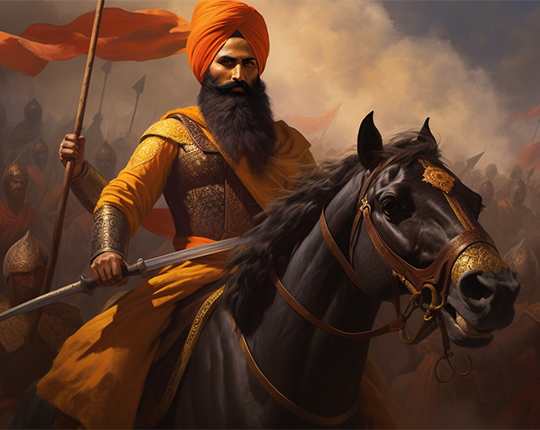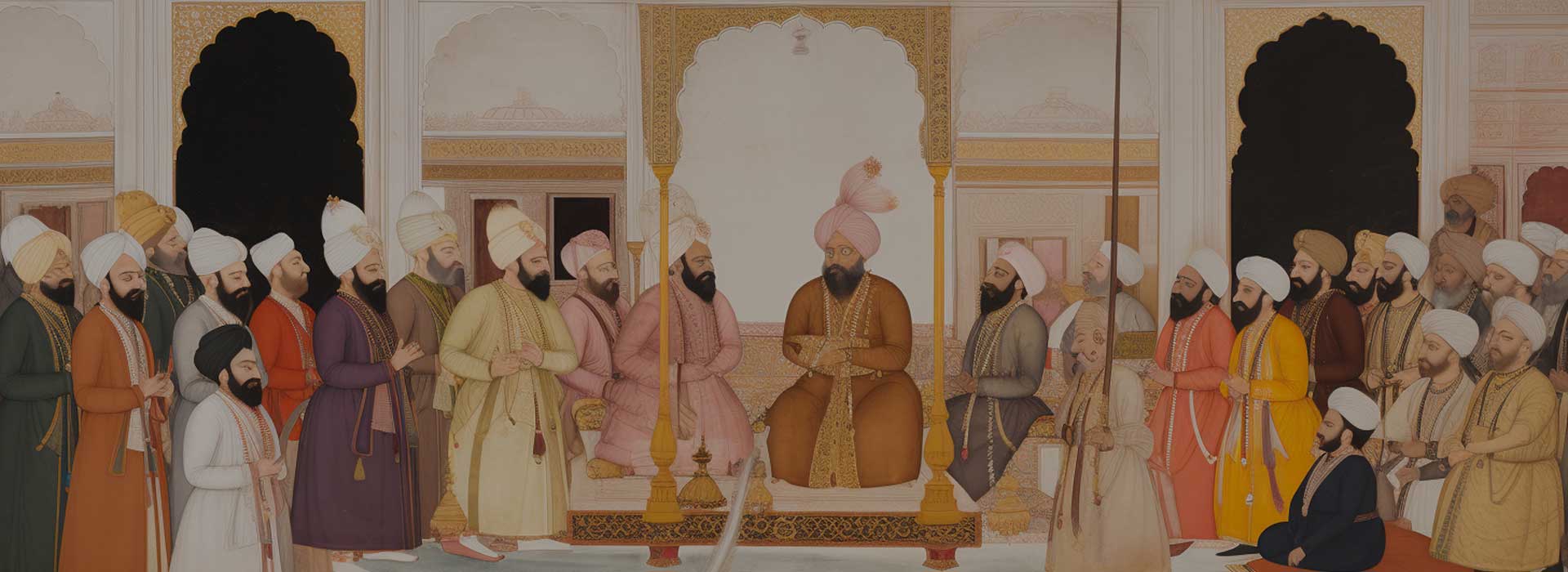Decentralization in Maharaja Ranjit Singh’s Empire
Ranjit Singh opted for decentralization as a strategic and pragmatic choice to foster stability and prosperity within his vast and diverse empire.
By empowering local leaders and communities to manage their own affairs, he sought to build a more cohesive and efficient administrative system.
This promoted economic growth and ensured justice and education tailored to the specific realities of different regions and communities.
Decentralized approach also helped in consolidating power and maintaining control over the widespread territories under his rule.

Appointment of Competent Officials: A Meritocratic Approach
Ranjit Singh’s emphasis on meritocracy revolutionized administrative appointments.
Regardless of religious or caste backgrounds, individuals were selected based on their competence.
For instance, an official like Faqir Aziz-ud-Din served as a capable finance minister, showcasing Singh’s commitment to decentralized governance by prioritizing skills over social affiliations.
Provincial and District-level Administration: Empowering Local Governance
Decentralization took shape in the form of provinces led by governors and districts managed by collectors.
This structure empowered leaders like Dewan Mokham Chand to govern the Lahore province effectively, attuned to local needs.
It exemplifies how decentralized administration led to localized, responsive governance.
Judicial System: Tailored Justice for Local Realities
The establishment of civil and criminal courts exemplified decentralization in justice. For instance, the Qazi of Lahore handled local disputes, ensuring swift and localized resolutions.
Ranjit Singh’s decentralized judicial system aimed at providing justice tailored to specific regions, fostering fairness within the Sikh Empire.
Promotion of Trade and Commerce: Interconnected Economic Growth
Decentralization in economic affairs was evident in Singh’s creation of a network of roads, canals, and markets.
This interconnected system facilitated local trade, as seen in the bustling bazaars of Amritsar. The decentralized approach contributed to economic growth by fostering regional trade and improving living standards.
Focus on Education: Inclusive Learning Across Socio-economic Strata
Ranjit Singh’s approach to education was decentralized, breaking away from traditional norms.
By establishing schools and colleges, he ensured educational opportunities for all, including those from diverse socio-economic classes.
The establishment of Khalsa College in Amritsar exemplifies this approach, aiming to provide quality education across different regions and communities.
Summary
The crux of decentralization during Maharaja Ranjit Singh’s era lay in the effective delegation of administrative, judicial, economic, and educational responsibilities to local and regional authorities.
This approach aimed to ensure efficient governance, responsiveness to local needs, and the promotion of inclusive development across the diverse territories of the empire.
